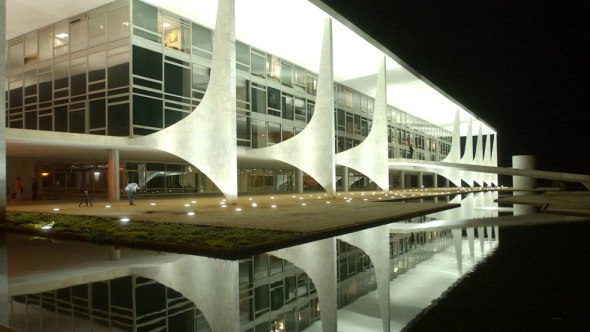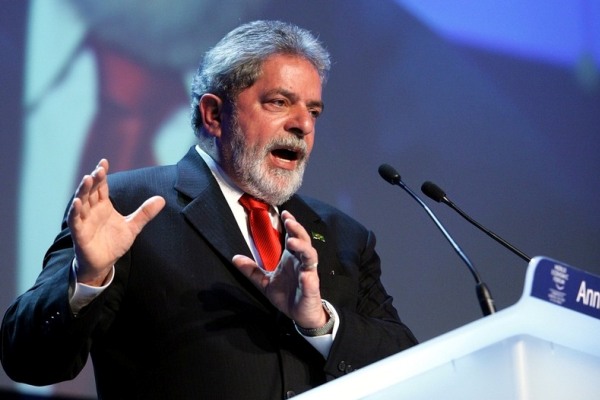Brazil’s Political History: Understanding Politics in Brazil
Brazil Top Stories
Brazil Political History: Understanding Politics in Brazil
The giant Brazil is known for having a formidable internal strength which is now gaining political and economic attention from around the globe, as the country starts looking outwards and opening its doors to the rest of the world.

Brazil Political History: Understanding Politics in Brazil
The highlights of Lula’s Presidency were the Bolsa Familia (Family Grant) and Fome Zero (Zero Hunger) initiatives that succeeded in elevating between 30 and 40 million people into the middle class and earned accolades from the World Bank for their impact on reducing social and economic inequality.
Although Brazil was a Portuguese colony and not a Spanish one like the vast majority of the Latin American continent, its early political history doesn´t differ greatly from that of its Spanish-speaking counterparts, with the plunder of its natural resources and the attempted eradication of its indigenous peoples being the order of the day from time Cabral claimed Brazil for the Portuguese in April, 1500. The fact however that Brazil shares a common language with only 8 other countries, none of which are on the same continent, did lead to Brazil becoming isolated – although never completely isolationist – turning its political and economic focus inwards, a fact which has arguably laid the foundations for Brazil´s formidable internal strength which is now gaining political and economic attention from around the globe, as the country starts looking outwards and opening its doors to the rest of the world.
Often accused of being so inward looking that it thought it was an island and not part of huge continent, Brazil is said to have started realizing that an outside world existed when Juscelino Kubitschek de Oliveira, hailed as the godfather of modern Brazil and affectionately referred to as JK, came to power in 1956. Most famous for relocating the Brazilian capital from Rio de Janeiro to a purpose-built Brasilia, Kubitschek’s term was also characterized by strong encouragement of both domestic and foreign investment, taking the first step towards policies that would become less and less isolationist.
In 1985, Brazil welcomed its first democratically elected president in 29 years but Fernando Collor de Mello inherited a Brazil suffering from intense hyperinflation and today’s pertinent issue of corruption came to the fore when Collor was tried and found guilty of impeachment charges and thus disqualified from holding office for 8 years. Although the fact that he was later acquitted, due to a supposed lack of evidence, and returned to the political scene is typical of the weak stance against corruption that has become synonymous with Brazilian politics up until now.
In spite of ongoing corruption from Brazil´s colonization to the current day, the stability and growth which has forced Brazil into the international spotlight was due to the success of 2 left-leaning political leaders forced to make coalition governments with parties from the hard right. The first was Fernando Henrique Cardoso, also commonly referred to simply by his initials, FHC, who, as Finance Minister, introduced the Real Plan which successfully curbed the hyperinflation that Brazil was suffering. On the back of his success as Finance Minister he was later elected president and served two consecutive four-year terms from 1994-2002. FHC´s achievements as President include the privatization of many state-run companies that were performing poorly said to have paved the way for the stable economical environment that Brazil is still enjoying.
His successor, Luiz Inacio Lula da Silva, fondly referred to as Lula, brought warmth and charisma to the role of President, and his endearing rags to riches tale won him unprecedented support not only at home, but throughout Latin America and the world – famously being tagged by Barack Obama as “the most popular politician on earth”- his policies brought between 30 to 40 million people out of poverty and unwittingly the corruption scandal that threatened to bring down his administration may now see Brazil take greater anti-corruption measures that could one day eradicate the bribery, fraud and dishonesty claims that continue to haunt one of the world´s largest democracies.

Before coming to power in 2003, Lula had already lost 3 elections, but his tenacity in the face of defeat, born out of a childhood spent in poverty where he learned to fight for everything, saw him persevere and finally triumph. The story of Lula´s life has become legend: a movie was made of how his father ran off with his mother´s cousin when Lula (the 7th of 8 children) was just 2 weeks old and that after 7 years of struggling his mother dragged the entire family on a 13 day journey on the back of a lorry across the country to be reunited with his father, only to find that he had already replaced them with a new family. They ended up living in the back area of a bar and Lula, who didn´t learn to read until he was 10, dropped out of school at 12 years old to work in order to help his mother. Working as a shoe shiner and street vendor he moved into the industrial labour sector where he became heavily involved in the Union movement and formed the left-wing Workers Party (Partido dos Trabalhadores, PT) in 1980 whilst Brazil was still under a 21 year military dictatorship (1964 – 1985). Twelve years later he finally became President of Brazil. The highlights of his Presidency were the Bolsa Familia (Family Grant) and Fome Zero (Zero Hunger) initiatives that succeeded in elevating between 30 and 40 million people into the middle class and earned accolades from the World Bank for their impact on reducing social and economic inequality. Lula also implemented other social, economical and political reforms and became a champion for the developing world, refusing to be intimidated by the United States and the European Union, which saw him feature on Time Magazine´s list of the World´s Most Influential People.
In a recent interview, Fernando Pimentel, H.E. Minister of Development, Industry and Foreign Trade, confirmed that these reforms were made possible by FHC´s successful policies: “The growth in Brazil is the result of a process initiated in the nineties with effective anti- inflationary policies. The gains from this process allowed the implementation of a bold income distribution plan during the government of the ex-president Lula, which led to the ascension of 30 million Brazilian to the middle class”.
Although many of Brazil´s upper middle class who despised Lula´s socialist polices are quick to point out that Lula´s presidency coincided with the start of a bull market which allowed Brazil to benefit enormously from China´s growing need to import food and natural resources both of which Brazil has plenty. Exporting commodities to China gave the Lula administration the capital boost required to be able to invest in its social policies.
The lowlight of his two consecutive four-year terms was the Mensalao (literally big monthly allowance) scandal in which top ranking members of his cabinet (but never Lula himself) were accused of being involved in a vote-buying scheme. The scandal broke out in 2005 when it was claimed that high-standing members of the Worker´s Party had been paying members of other political parties to become allies, and in Brazil forming such political allies is of paramount importance as the country’s multi-party system engenders what is often referred to as a Coalition Democracy, meaning no one party can gain power on its own. After more than 7 years of delays the trial finally started on the 2nd of August this year with 38 politicians and businessmen being tried in one of the biggest cases heard in Brazil since the end of its military dictatorship, and after over a month of proceedings ex-president of the lower house of Congress, Joao Paulo Cunha, was convicted of corruption and forced to resign from the local elections where he was running for Mayor of Osasco city in the State of Sao Paulo.